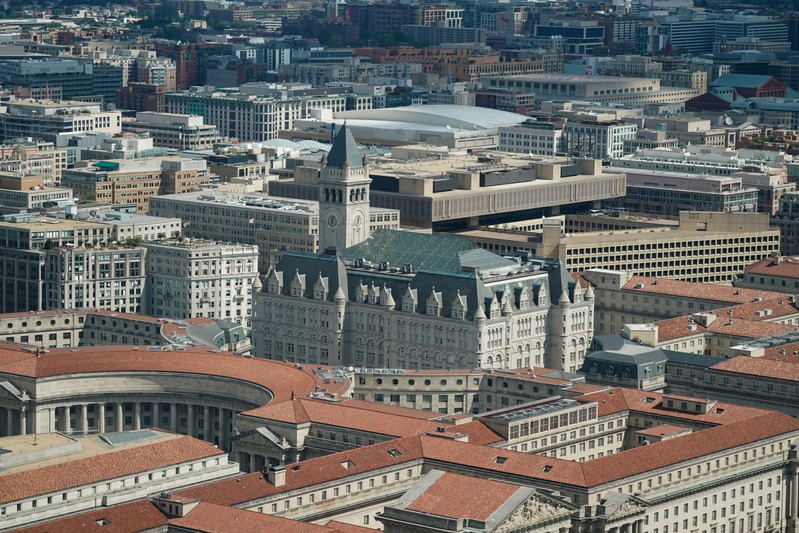
FILE PHOTO: Trump International Hotel is seen from the Washington Monument in Washington, U.S., September 18, 2019 ahead of the reopening of the monument to visitors Thursday, September 19 after more than three years of construction and repairs. REUTERS/Sarah Silbiger/File Photo
October 25, 2019
WASHINGTON (Reuters) – The Trump Organization is seeking to sell the rights to its Washington, DC-based hotel, a property at the heart of litigation alleging President Donald Trump violated anti-corruption provisions of the U.S. Constitution, the Wall Street Journal reported on Friday
The possible license sale, being marketed by real estate company JLL, stems in part from ethical concerns regarding the family’s profits from the property, the Journal said, citing a company statement.
“People are objecting to us making so much money on the hotel, and therefore we may be willing to sell,” said Eric Trump, Trump’s son and an executive vice president at the company, according to the report.
Reuters could not immediately confirm the report. The Washington Post also reported the discussions, citing two people familiar with them.
Housed in a historic building on Pennsylvania Avenue in the heart of the nation’s capital, the gilded hotel has been a lightning rod even before Trump took office in the White House a few blocks away.
Trump’s ownership – which began before his presidency – has prompted three lawsuits alleging it violates the U.S. Constitution’s anti-corruption “emoluments” provisions that ban the U.S. president from accepting gifts or payments from foreign governments without congressional consent.
U.S. lawmakers, state attorneys general and a watchdog have filed lawsuits alleging that Trump’s failure to disentangle himself from his family business exposes him to inducements by officials and others seeking to curry favor.
The site has attracted protesters and disputes over its restaurants. It has also become a known gathering spot for Trump associates, Republicans and others in the president’s orbit.
The Trumps are seeking more than $500 million for the rights, the Journal reported, citing people familiar with the matter.
(Reporting by Susan Heavey and Jan Wolfe; Editing by Dan Grebler)

